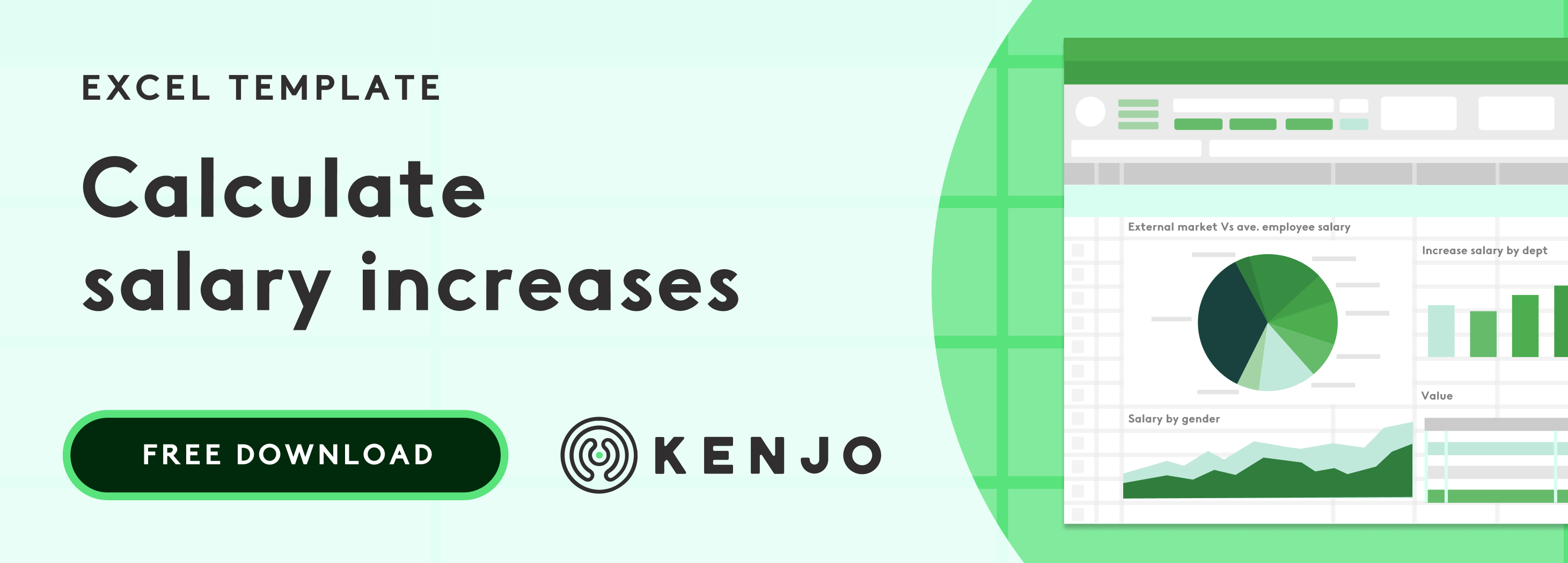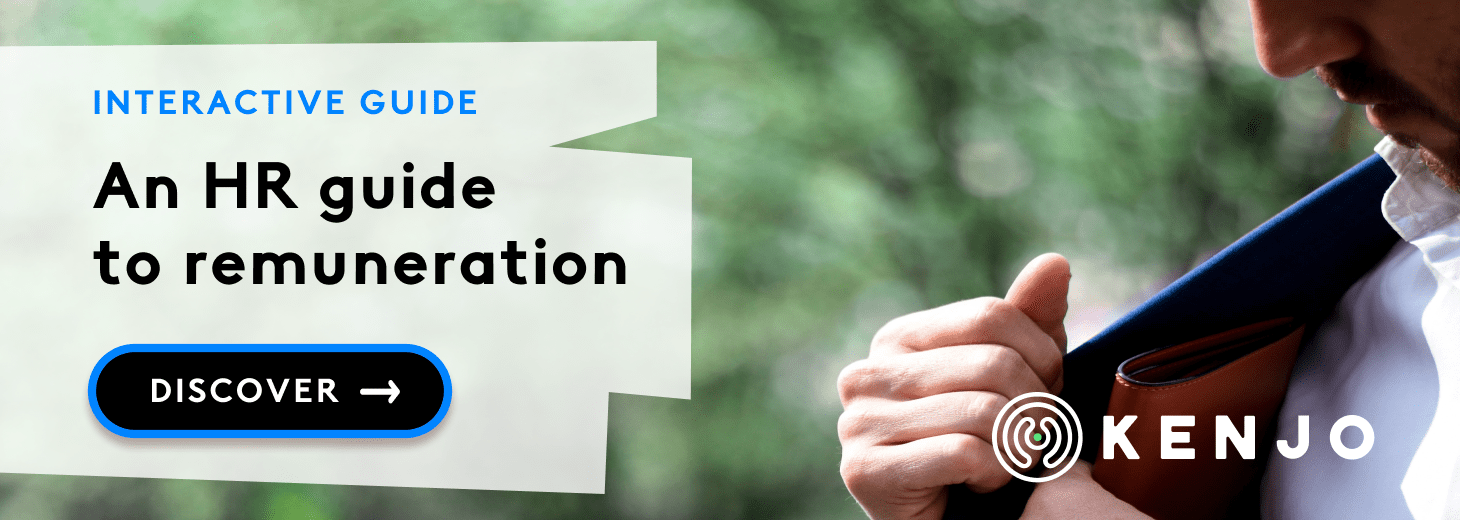Payment in kind is an interesting alternative when offering salary packages to your employees.
Remuneration is one of the most critical aspects of business operation. A well-designed remuneration plan is essential when offering salaries. This will help companies to prosper and compete in their respective markets because it:
- Attracts and helps to retain the best talent.
- Boosts employee motivation in the workplace.
- Strengthens employees' loyalty and sense of security.
- Increases productivity and profitability.
- Improves employee satisfaction levels.
Some people also refer to payment in kind as benefits in kind. And many still struggle to understand the term and the implications it has for both the company and employees.
We'll explain this in more detail below, to help you gain a deeper understanding of the value and the legal implications of payment in kind.
Definition of payment in kind
Payment in kind refers to everything that is paid or awarded in assets, products or services instead of money to maintain or improve employee salaries.
Thomson Reuters defines the benefits in kind as "non-monetary benefits provided to an employee or worker that forms part of their remuneration." This can include anything from food, drink, clothing, footwear, free or subsidised housing or transport to car parking, childcare or loans.

What does international law say about payment in kind?
In most countries, payment in kind cannot be included as part of the minimum wage. However, each country has its own specific legislation.
The International Labour Organisation emphasises the need for regulation to prevent abuse and to safeguard workers' rights. For example, in Spain, payment in kind must not exceed 30% of a worker's salary. In France and Switzerland, on the other hand, there is a maximum daily monetary value on payments in kind for domestic workers.
And in the UK, employers must pay workers at least the National Minimum Wages, before any benefits.
What's the difference between payment in kind and monetary compensation?
As you'll discover in our blog, there are different types of employee compensation.
- Fixed base salary: A fixed base salary relates to the minimum amount a company offers an employee and which is stated in their contract.
- Variable pay: With this type of remuneration, the amount an employee receives depends on their performance and on reaching predetermined objectives.
The third type is what's known as flexible benefits or payment or benefits in kind. The difference between this and the other two is that they are non-monetary payments or products or services offered by the company.
We have to be very careful here. When talking about non-monetary payments, we mustn't assume that payment in kind and flexible benefits are the same thing. The main difference with flexible benefits is that the company offers its employees a benefits package that they can adapt to suit themselves. They can choose how much they wish to receive in money and choose benefits (products or services) to make up the rest.
Main examples of payment in kind
Not all the services or benefits a company offers can be considered as benefits in kind. They are benefits that can be quantified in financial terms, and the most common examples are as follows:
- Accommodation When the employer offers an employee a house or accommodation free of charge or as a rental below the average market value.
- Meals Employers can offer their workers meal vouchers up to a certain value or free meals in a staff canteen.
- Subsidised transportation This can be offered either in the form of a public transport card or a car mileage allowance.
- Private insurance premiums, either for medical, dental or occupational purposes.
- Company car The company may provide an employee with a car. It's worth mentioning that there are different tax implications when the company gives an employee a car that will be used for personal reasons and not for work purposes. Be sure to look into this before including it as a benefit in kind.
Car parking spaces can also be considered payment in kind when used as part of the employee's duties. This covers vehicles including cars, motorbikes and bicycles.
Likewise, companies also provide their employees with fuel by way of a card or mileage allowance, although the tax implications can vary depending on how the fuel is used.
Do you pay social security contributions on payment in kind?
According to the International Labour Organisation, "payments in kind are one component of total earning and for this reason, should in principle count as part of the value on which social security contributions are based."
So, in other words, if an employee received €1500 and 20% is paid in kind, then total social security contributions should be based on €1500 (and not €1200).
However, UK law states that it's the employer's responsibility to pay social security contributions on benefits in kind, and not the employee. Workers will, however, have to pay tax on certain benefits in kind, depending on the type and how they are provided.
Tax-free payments in kind
Firstly, it's important to note that where benefits in kind are provided as part of a salary sacrifice agreement (where the worker agrees to receive less money in exchange for these benefits), they will be subject to tax. When benefits are not included in a salary sacrifice agreement, some will be exempt from tax. The rules surrounding this can be quite complicated, depending in which country your company is based. So we recommend you consult an expert before defining your compensation plan. Nevertheless, here are some common forms of payment in kind that are normally exempt from tax:
Approved occupational or pension schemes
As an employer, any contributions you make towards an approved occupational or personal pension schemes are exempt from tax. Most schemes are included but do check in advance.
Cheap or free staff canteen meals
Meals provided on the company premises in a staff canteen, and that are provided for all employees are also exempt from tax. Other forms of meal vouchers that will be used off-premises will be subject to tax.

Certain childcare arrangements
Childcare facilities are exempt from tax when the employer provides them on their own premises. There are also different rules depending on whether you refund employees for their childcare expenses, you have negotiated a contract with a childcare provider or you provide your employees with childcare vouchers.
Transport
Work buses and public transport subsidies for work purposes are tax-free. Other forms of transport arrangements that are exempt include when the employer provides bicycles or cycling safety equipment used for commuting, as well as parking spaces, as mentioned before.
In-house sports facilities
Companies that provide onsite gyms and sports facilities to improve their employees' health and well-being do not have to declare them for tax purposes.
Other forms of fitness benefits, such as subsidised membership to a private club could be subject to tax, so it's important to investigate before finalising your offer.
Ultimately, these tax-free examples of payment in kind have no financial repercussions for the company and provide some employees with some valuable, tax-free benefits at the same time.



